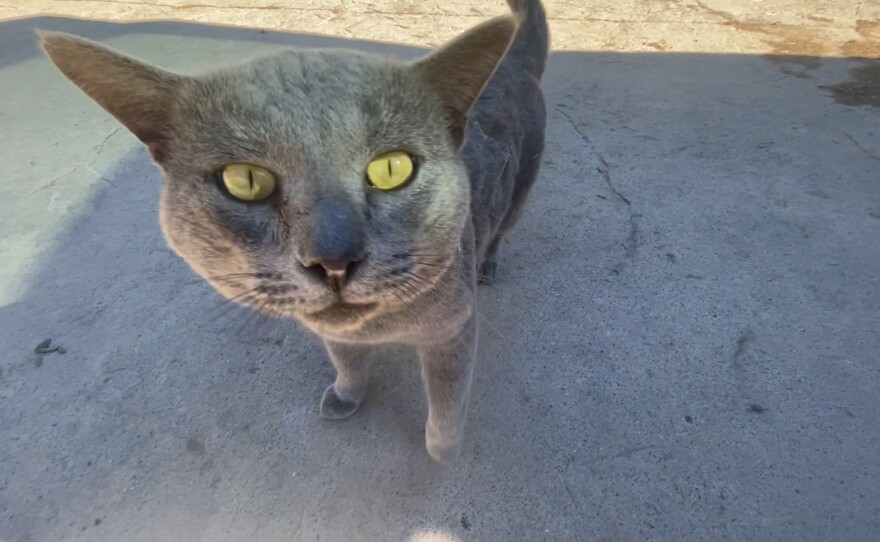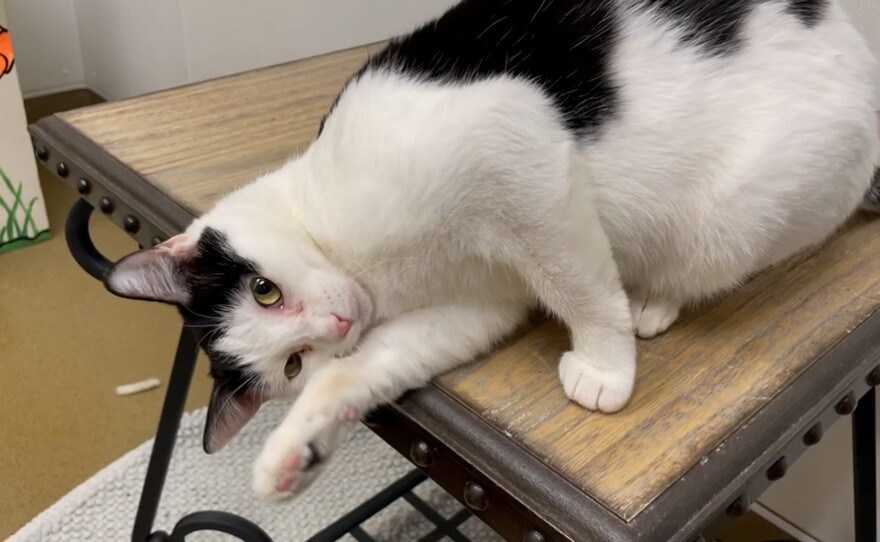San Diego County has a new program for cats that aren't friendly enough to live in normal homes with families but avoid keeping them in shelters or euthanizing them.
The program is called ‘Working Cats’ and the cats do exactly that: work.
“These cats are shy, they’re not as social as the cats in our traditional adoption program but they are excellent mousers,” said Kelly Campbell, the director of San Diego County Department of Animal Services. “They’re more than willing to help patrol your property, your warehouse, your outbuilding, your barn and make sure that it's pest-free.”
She said working cats are a great organic pest control option, especially for people living in rural areas of San Diego County.
“Where people might have ranches, or larger properties, or more buildings on their properties. In particular, folks who might have some agricultural or some ranch work that gets done. You’ve almost certainly got rodents and so working cats can be a great alternative to things like pesticides or poisons, or glue traps,” she said. “These guys are all-natural and keep pollution away and keep poisons out of the environment while controlling the pest problem.”
Rainbow resident Douglass Gastelum has four working cats on his 14-acre property.

“Whatever it was that was decimating our garden, gophers, squirrels, whatever, they are done too so the cats help control all of that stuff,” he said.
His cats have taken care of rodents on his property and one even killed a rattlesnake, Gastelum said.
There is concern that working cats are vulnerable to coyotes. But Gastelum said the feral cats are survivors.
“We've had our feral for four years next month and he’s out every night, and if I were a coyote I wouldn’t mess with him,” he said.
Gastelum said each cat has a unique personality and some are friendlier while others keep their distance. But they all fit into the organic practices he wants on his ranch.
“The rodents are problems, they’re rodents and they have a right to live but live somewhere else,” he said. “A lot of people poison them and you can see we have an owl box right there so then if they’re poisoned, the owls eat them or the hawks eat them and then the owls and the hawks and the other things get poisoned. Cats are a really good solution, that's how we try to do most things out here. Use natural biological solutions.”
Campbell said all animal shelters are operating almost at full capacity, so they’re waiving adoption fees for working cats. The cats are vaccinated and microchipped.
“Beyond that, they would only need the standard veterinary care or treatment for any injuries that might happen, but other than that they’re pretty easy keepers,” she said.
If taking a working cat home isn’t an option, the shelter is always looking for foster families and volunteers, Campbell said.







